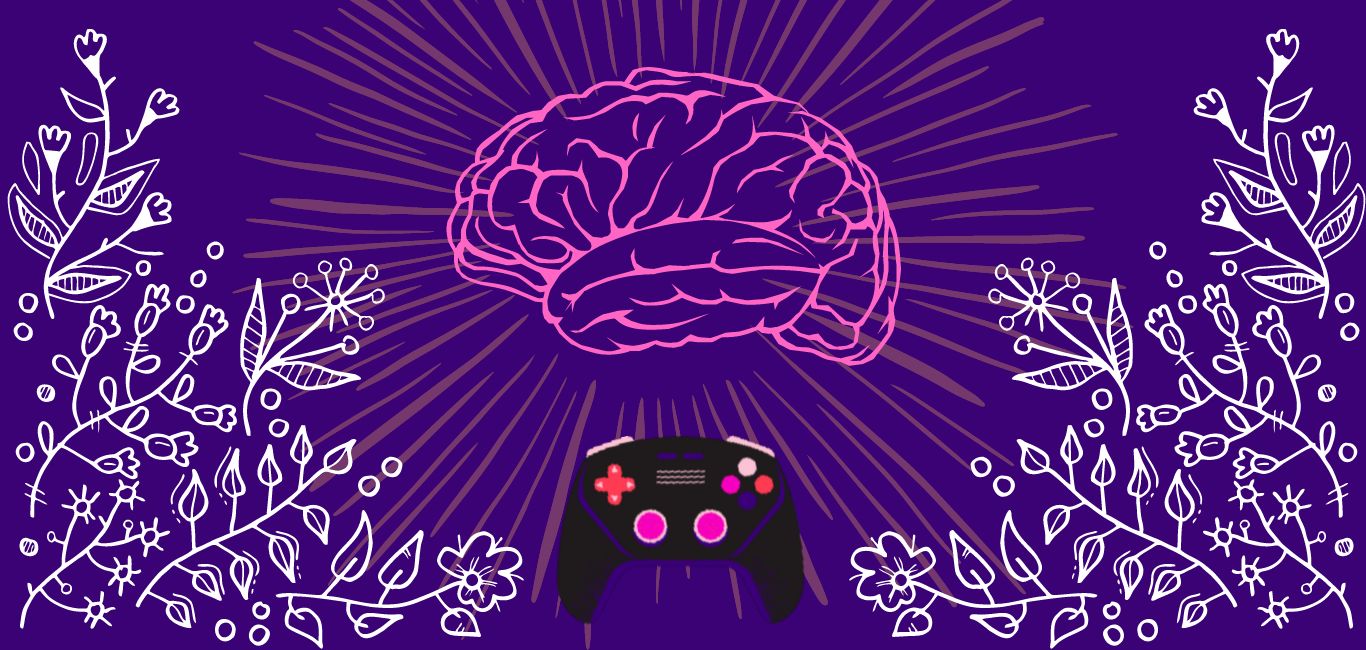
It is one thing to receive mental health advice and another to practise it.
When it comes to the golden rule of `show, don’t tell’, video games are uniquely equipped for it, whether they are for dealing with negative thoughts, or for learning to focus on a task.
In this example from the 2018 video game Celeste, the player is given a vivid experience of a panic attack – and taught a useful technique for getting out of one. The premise is simple gameplay: hold a button to make a feather rise up, release it to let gravity bring it down. Try to keep the feather in the middle of your vision.
So popular was Celeste’s depiction of mental health issues that a mini-game was made for those who just want to play the feather exercise. As more games incorporate lessons from mental health self-care into their narratives, can games start to be seen as a form of therapy?
READ: Understanding panic attacks
Visualising a solution
In the real world, guided imagery and visualisation have long been a part of the counselling toolkit. Cognitive behavioural therapy (CBT) employs similar techniques. But the growing popularity of video games as a medium has opened doors to new counselling spaces.
In 2020, the US Food and Drug Administration (FDA) approved the first game-based “digital therapeutic” for the treatment of attention deficit hyperactivity disorder (ADHD). EndeavorRX, developed by Akili Interactive, is a prescription-only video game for children aged 8-12 years who have ADHD.
The game followed seven years of clinical trials, which found cognitive benefits to regular use of its attention-enhancing game, with mild side effects such as headaches in a few users. The “dosage” is to play it for 25 minutes a day, five days a week for four weeks – and the promised outcome is improved attention.
Akili Interactive hopes the game will be the first of many in a line-up of “digital medicine”. Its next projects include virtual therapies for COVID-19-induced brain fog. In May, it tied up with Roblox, a popular sandbox game played by over half the children in the US – and with over 230 million registered players worldwide.
In session rooms
Are games for mental health ready to hit the mainstream?
Dr Kelli Dunlap, adjunct instructor at American University, has a master’s in game design on top of her doctorate in clinical psychology. She has long brought games into the therapy room. In her sessions, Dr Dunlap encourages gamers to bring their favourite games to the room. Watching them play helps her to understand what motivates and engages them, and perhaps even what brings them happiness.
She expects to see more medicalisation of games in the years to come.
“One of the biggest challenges is that making a therapeutic intervention is expensive. Making a game is also very expensive. Putting those two things together creates a massive cost barrier to development,” she says.
Social messages
However, she notes that one does not need FDA-approved “game therapeutics” to use games as medicine. She highlights the example of Games for Change, a not-for-profit organisation that encourages the creation of video games that can drive social change.
GFG’s initiatives include video games that discourage bullying as well as games that provoke discussions on everything from grieving to long-distance relationships.
“Play is, unto itself, therapeutic. Play is a core part of human health and happiness across the lifespan, and when we play games we tap into that basic need,” she says. “Games allow us to connect with others, to be creative and curious and challenge ourselves in ways that are meaningful and fulfilling. All of these things – meaning, fulfilment, creativity, curiosity, connection, and challenge – are things that are explored and encouraged in therapy.”
Slaying the enemy within
With or without FDA approval, games have been tackling mental health. Long before EndeavorRx. A 2013 role-playing game called Sparx made use of techniques from CBT to help teenagers cope with mild to moderate depression.
Through seven levels, Sparx gamified many of the learnings one would get from CBT. It introduced in-game enemies called GNATS (Gloomy Negative Automatic Thoughts) that the player had to defeat – in the process learning about healthy thought patterns.
A trial comparing the playthrough of the game with routine treatment found a “clinically significant reduction in depression, anxiety, and hopelessness and an improvement in quality of life.”
Escape from bleakness
In contrast to games with overt uplifting messages, bleak games like the S.T.A.L.K.E.R franchise – which sets players in the irradiated wastelands around the Chernobyl nuclear power plant – prove to relate to those with depression.
In S.T.A.L.K.E.R: Shadow of Chornobyl, players spend hours trudging alone through the bleakest post-nuclear leak Soviet landscapes of the 1980s. Dotted amid the ruins are small campfires, where players may meet other “non-player characters” (NPCs). The NPCs sit by the fire with the player, trading war stories and strumming Ukrainian folk songs on their guitars. For a game with such dark overtones, such moments offer genuine warmth. But this “human” camaraderie is with an AI.
Happiest Health spoke with gamers from across the world who resonated with the theme and mood of these games. Tony, a 22-year-old from Germany, calls S.T.A.L.K.E.R one of the best games and books in the world for dealing with depression, “especially for disenfranchised young people struggling with poverty.”
“When you’re working 16 hours a day for pocket change it’s easy to get lost in the lives of others on Instagram and such. Games like this and the book [Roadside Picnic – A Soviet-era science fiction book that inspired the video game] especially reminds you that there’re many people out there pushing through the same struggle, even though they are fictional,” he says.
Arturo from Honduras says he prefers bleak and narrative-heavy games that can distract him from stuff he would “rather not think about”. He has ADHD and depression.
27-year-old “Gray” from Puerto Rico says playing Tomb Raider helped him cope with depression at the start of the COVID-19 pandemic. “It helped so much to get my mind out of what was going on in my life.”
Joys of social bonding
The ability of a player to “win” at a difficult video game can offer a unique reward. But other aspects of gaming also help.
“When someone achieves an epic win, vanquishes a boss, solves a puzzle, or levels up, we benefit from a sense of self-efficacy,” points out Dr Dunlap. Playing a game with your friends can fulfil social needs. The feeling of freedom that video games offer can also help players feel a sense of agency. “Social connection, self-efficacy, autonomy and agency are core psychological needs and by nourishing these needs, we benefit our mental health,” she adds.
A worrisome flip side
Video game addiction can impact many aspects of a person’s health. In South Korea, over 90 per cent of adolescents play at least one video game regularly. A Chinese couple in 2009 let their baby die, after devoting all their attention towards taking care of a “virtual baby” in a game.
Chinese authorities tried tackling the problem of video game addiction by barring minors from gaming between midnight and 6 a.m. The rationale was to allow them six hours of sleep. But, in 2021, this ban was lifted.
A distress signal
However, video game addiction does not exist in a void. Cross-sectional studies have found a strong correlation between gaming addiction and psychological distress.
One such example from Norway polled over 20,000 individuals and found strong links between gaming addiction and the presence of psychiatric disorders. Not just gaming, but other aspects of internet addiction have links with general dissatisfaction.
“Addictive use of social media was positively related with being female and single, lower age, ADHD, OCD, anxiety, and lower levels of depression,” the study reads.
Health bodies differ in their approach to gaming. The World Health Organization listed internet gaming disorder in the 11th edition of the International Classification of Diseases. But, the American Psychiatric Association does not consider it a disorder – though it highlights the risk of online gambling.

















